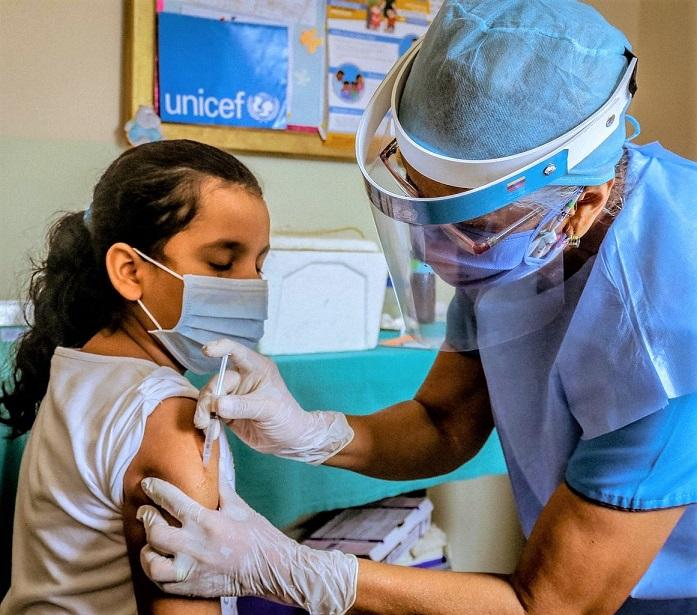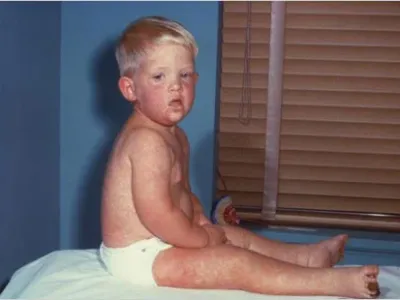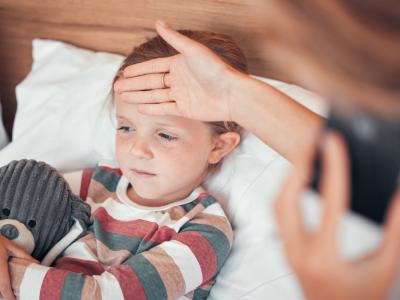As feared among the many downstream impacts of the pandemic, early data show a decline in childhood immunizations that could reverse years of hard-won progress, the World Health Organization (WHO) and UNICEF said today.
The global COVID-19 total climbed to 13,405,694 cases, and 580,552 people have died from their infections, according to the Johns Hopkins online dashboard.
Immunization coverage falters
In May, health officials warned that the COVID-19 pandemic was disrupting routine vaccine services in 68 countries and called for joint efforts to safety deliver them. And now, preliminary vaccine coverage estimates from the first 4 months of 2020 show a substantial drop in the number of children receiving all three doses of diphtheria, tetanus, and pertussis (DPT3) vaccine, considered a marker for immunization coverage within and across countries.
In a statement today, the WHO said the drop in DPT3 coverage is the first in 28 years.
Though progress on vaccine coverage has stalled over the past decade, health officials have been able to reach more children and adolescents with a wider range of vaccines, such as the expansion of human papillomavirus vaccine to 106 countries.
WHO Director-General Tedros Adhanom Ghebreyesus, PhD, said the avoidable suffering and death from children missing out on routine vaccines could eclipse that of COVID-19. "But it doesn't have to be that way. Vaccines can be delivered safely even during the pandemic, and we are calling on countries to ensure these essential life-saving programs continue," he said.
A new survey conducted by the WHO and its partners, including the US Centers for Disease Control and Prevention and other groups in the United States, found that three-fourths of the 82 countries that responded said COVID-19 disruptions have affected immunization programs as of May. Service disruptions vary, and even when services are available, people are reluctant to leave home and struggle with transportation availability, economic hardships, movement restrictions, and fears of being exposed to the virus.
Health workers delivering vaccination services have also faced travel restrictions, deployments to COVID-19 activities, and shortages of personal protective equipment (PPE).
Equitable vaccine access initiative
In a global effort to support vaccine development and ensure that lower-income countries receive COVID-19 vaccine, the WHO today said that 75 countries have expressed interesting in joining the COVAX Facility. The program, unveiled last month, is a global collaboration between the WHO, GAVI, and the Coalition for Epidemic Preparedness Innovations (CEPI) to share the risks of vaccine development, invest in manufacturing, and pool purchasing power.
The 75 countries would finance their own vaccines and partner with 90 lower-income countries through voluntary contributions to GAVI's COVAX advance market commitment mechanism. The WHO said the group of countries participating so far represents 60% of the world's population.
COVAX is a key component of the WHO-led Access to COVID-19 Tools (ACT) Accelerator, a global collaboration to speed the development and equitable access to pandemic drugs, vaccines, and diagnostics.
Seth Berkley, MD, GAVI's chief executive officer, said the program gives countries access to guaranteed doses and prevents them from being pushed to the back of the line, which occurred during the 2009 H1N1 pandemic. He notes that the program benefits countries of all income levels. "Even for those countries that are able to secure their own agreements with vaccine manufacturers, this mechanism represents, through its world-leading portfolio of vaccine candidates, a means of reducing the risks associated with individual candidates failing to show efficacy or gain licensure," Berkley said.
CEPI's chief executive officer Richard Hatchett, MD, said, "This early level of interest represents a tremendous vote of confidence in COVAX and our shared goal to protect people around the globe through the fair allocation of a COVID-19 vaccine." He added that ensuring equal access isn't only a matter of equity, it's the fastest way to end the pandemic.
So far, seven of nine vaccines supported by CEPI are in clinical trials, and a memorandum of understanding with AstraZeneca commits 300 million doses of COVID-19 vaccine to COVAX
More lockdowns in India and Iran
India reported nearly 30,000 new cases today, with cases approaching 1 million. Also, two states reimposed lockdowns, including Bihar state, where the measure will last 2 weeks and affect 125 million people. The other is in Uttar Pradesh state and will last for the weekend and affect about 204 million people.
In Iran, government officials yesterday announced new closures on public places in Tehran to last 1 week, due to a surge of cases there, FARS News Agency reported.
In other global developments:
- Tokyo raised its COVID-19 alert to the highest level, amid a resurgence that has resulted in more than 200 daily cases reported in 4 of the last 7 days, Reuters Other parts of Japan are also experiencing upticks in cases.
- Russian researchers today at a briefing shared the results of a phase 1 trial of a COVID-19 vaccine, which showed that the vaccine was safe and induced an immune response, according to Reuters. The trial involved 18 participants, and a larger trial to monitor the strength and length of the immune response is slated to begin in the middle of August.






















